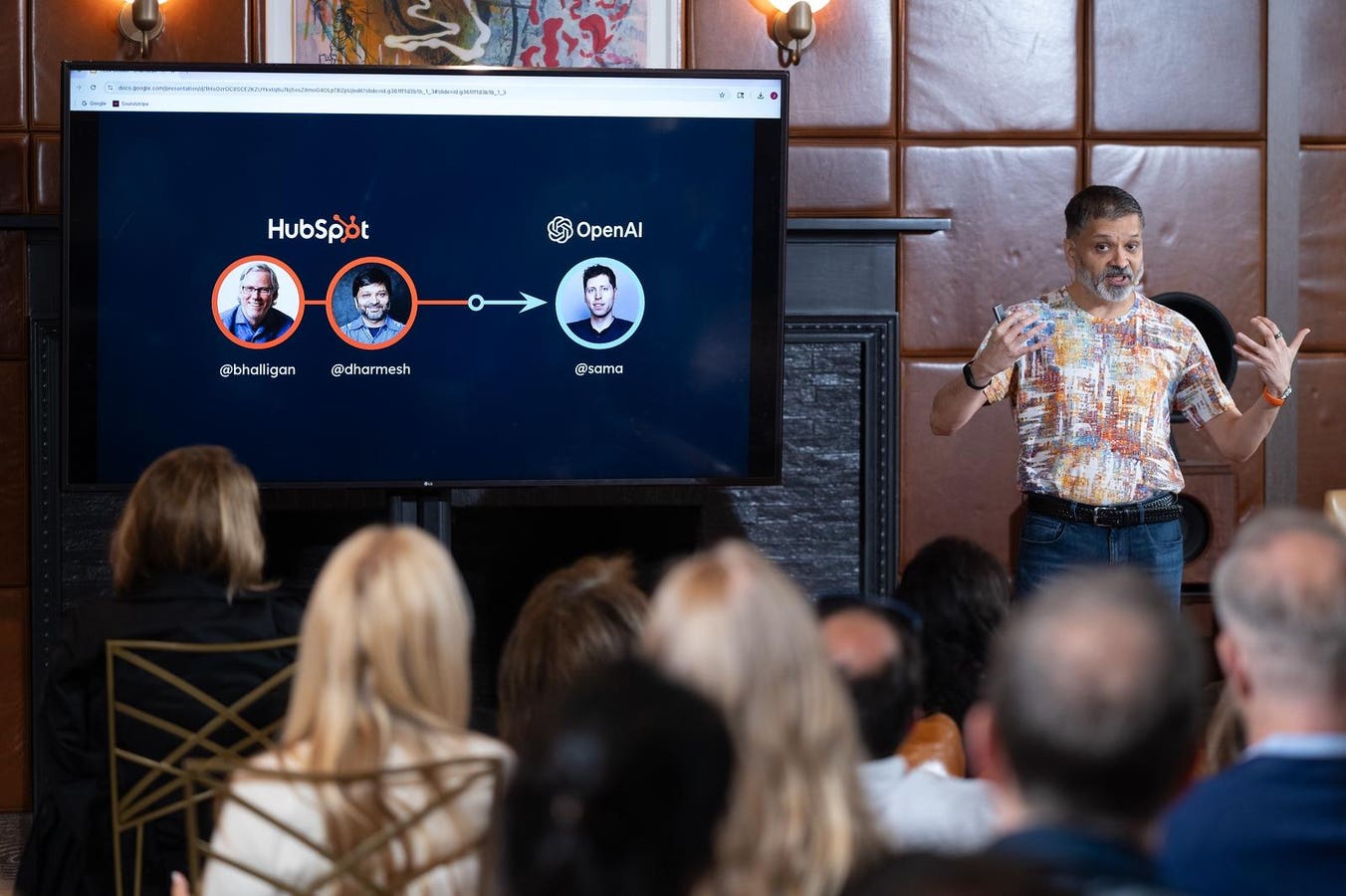Autism is a spectrum, encompassing a wide range of experiences and abilities.
The new public health administration in the U.S., headed by Robert F. Kennedy Jr., has made helping people with autism one of its priorities. However, in order to give people the help they need and want, it is necessary to understand what autism is and what it is not. Last week’s press conference led to concern among the autism community and their advocates because many of RFK’s statements mischaracterized autism and even insulted autistic people. As a pediatrician who focuses on autism and other forms of neurodivergence, I would like to set the record straight.
What is autism?
Autism is a difference in neurodevelopment, i.e. how the brain wires itself throughout infancy and childhood. Long called a disorder by the medical community, because autistic people behave differently from what is considered typical, autism may be better understood as neurodivergence, a different way of being in the world that comes with it’s own distinct strengths and challenges.
The autism press conference
In opposition to decades of rigorous study or the experiences of autistic people, RFK’s comments characterized autism as a relentlessly expanding epidemic that destroys families. He asserted that this could not be explained by genetics or changes in diagnostic criteria and public awareness and that anyone who disagreed with him was an “epidemic denier.” Let’s fact check the specifics from the press conference.
Changes in Autism Diagnostic Criteria
“One of the things we need to move away from today is the ideology that the relentless increases in autism prevalence are simply artifacts of better diagnosis, better recognition, or changing diagnostic criteria. If you accept the epidemic deniers narrative, you have to accept… that thousands of profoundly disabled children were somehow invisible to doctors teachers parents and even their own study. Autism is a condition characterized by profound impairments in communication and behavior would have stood out like a neon sign,” said Kennedy.
Actually, in the historical time-frame RFK refers to in these remarks, many children who would now be diagnosed with autism were then labelled with “mental retardation” or “childhood schizophrenia,” a diagnosis that was only removed from the DSM in 1987. Further, to suggest that autistic children are always “profoundly disabled” or would have “stood out like a neon sign” shows that Secretary Kennedy is not very familiar with autism. Many of the people who are diagnosed with autism today have subtle differences in communication or behavior and would either have been missed in the past or given other labels.
For example, as recently as 2013 it was considered impossible to have both ADHD and autism. This means that if a child was diagnosed with ADHD, any signs of autism would have been ignored. And as the AuDHD community would tell you, many people with both autism and ADHD are ‘ADHD presenting,’ meaning that their ADHD symptoms are obvious to outsiders but you don’t see their autistic features until you know them well.
What causes autism?
“This is a preventable disease, we know it’s an environmental exposure… studying genetic causes is a dead end,” said Kennedy.
The familial nature of autism was noted in the 1930s by Asperger, who recorded the features in the parents of the children he treated. Scientists have known since the 1970s that autism is genetic. In my own pediatric training, my preceptors referred to family members of the patients in their autism clinic as “on the spectrum,” discussing how they showed all the features of autism but were not severely impaired enough to get diagnosed. These days, those folks get diagnosed with autism.
RFK promises to eliminate the cause of autism
“By September, we will know what has caused the autism epidemic and we’ll be able to eliminate those exposures,” Kennedy said in a different statement.
From a scientific viewpoint, this statement is highly suspect. We have been studying autism for decades, and our studies show that autism is highly genetic, and that certain prenatal exposures or risk factors can increase the likelihood of those genes expressing themselves. It is important to study the myriad pollutants in our environment that could play a role in modifying gene expression, but that work takes years. And it’s work that is hard to do as the current administration deregulates industry and makes cuts at the Environmental Protection Agency.
The only way Mr. Kennedy could be sure of proving that there is an environmental toxin that we can eliminate in five months would be if he had already selected the toxin. RFK has long supported the scientifically debunked claim that vaccines cause autism. He chose David Geier, a key figure in the anti-vaccine community who has practiced medicine without a license, to lead this study.
WASHINGTON, DC – APRIL 16: U.S. Secretary of Health and Human Services Robert F. Kennedy Jr. speaks … More
Autism is a spectrum
“Most of the cases are now severe. 25% of the kids who are diagnosed with autism are nonverbal, non toilet trained, and have other stereotypical features, uh head-banding, tactile and light sensitivities, stimming, toe walking, etc,” said Kennedy.
By definition, 25% is not most. 25% is a minority. The Autism and Developmental Disabilities Monitory report Kennedy was refering to indicated that 24% of the children diagnosed with autism had a documented intellectual disability, which is consistent with past findings. It’s worth noting that up to 2% of autistic individuals have gifted intelligence, which is up to twice the rate of neurotypical people. More than half of autistic people have normal or above average intelligence.
Autism is a non linear spectrum best visualized as a multi-colored circle. Some individuals need a lot of support, others need little.
Non-speaking autistic children
Non-verbal autistic children, or non-speaking as the autistic community prefers to call it, often understand words and communicate through other means, such as assistive technologies. Some of them go on to begin speaking as adolescents and adults. Further, experts in the field are concerned that some autistic children may be inappropriately labelled with intellectual disability simply because they are non-speaking, due to the way neuropsychological tests are designed.
Sensory processing differences
Differences in sensory processing and experience is part of autism, and can lead autistic people to find the noise-polluted, fluorescent lighted, screen-reliant modern world overstimulating. But autistic people may have an advantage here because they notice the effects of the way we’ve designed our world. These factors are well known to have a negative impact on the mental and physical health of neurotypical folks too, even when they don’t notice them.
Further, some autistic individuals harness their sensory sensitivities to achieve unique expertise, such as in sound engineering, or the close observation needed in the practice of medicine.
Stimming helps autistic people self-regulate
Stimming refers to helpful ways autistic folks find self-regulate their nervous systems. Each person has their own varied way of doing this, but classic examples may be spinning in circles, making hand movements near the face, or playing with an object. Interestingly, when we see similar behaviors in people with ADHD, we used the less stigmatized term fidgeting.
Mischaracterizing autistic people
“Autism destroys families… These are kids who will never pay taxes, they’ll never hold a job…” said Kennedy.
While RFK Jr clarified this comment on Hannity to say that he was referring to the children with severe autism, the autism community has found this offensive and concerning. As @turtlenecker223 commented on YouTube after watching Mr. Kennedy’s remarks, “I’ve been with my autistic girlfriend for 3 years. She can write, she can poop unassisted, she can keep a job, she’s payed taxes, and she didn’t destroy her family. She’s a normal person, except she gets overwhelmed and thinks differently than I do.”
On social media, and in an article by Jessica Grose, many have noted that this language directly parallels that used in the eugenics movement of the 1920s. By placing paying taxes and holding a job first, RFK’s comment suggested to many that this is where he locates the value of a person. If this was his intent, it is in direct opposition to my own mission as a pediatrician. As the American Academy of Pediatrics affirms as a core value their belief in “the inherent worth of all children; they are our most enduring and vulnerable legacy.”
Autistic people can work and pay taxes
Many people with autism are employed and pay taxes. Past statistics that suggest few autistic people work relied on older diagnostic criteria that excluded a large number of the people who would currently be considered autistic. This means that the percentage of autistic people who are employed is likely higher than previously estimated.
Poetry, dating and potty-training
“They’ll never play baseball. They’ll never write a poem. They’ll never go out on a date. Many of them will never use a toilet unassisted,” said Kennedy.
While we do not have good statistics on toilet training in the autistic population, we do know that autistic children potty train later than their peers. However, the vast majority of them eventually achieve the ability to toilet independently.
As to sports, autistic people can definitely be athletes. Just to name a couple, former NFL player Joe Barksdale and former NBA player Tony Snell have publicly discussed being on the spectrum.
I personally know many autistic people who have not only dated, but are now married and employed in high paying jobs in science, engineering, technology and medicine. Lots of doctors are quietly getting diagnosed with autism as adults and have formed Autistic Doctors International. ADI seeks to educate the public about autism and how doctors benefit from the strengths of the autistic brain and social style when they practice medicine.
And as for writing a poem, the Poetry Society of America has highlighted autistic poets. Many point out that the great Emily Dickinson manifested many symptoms of autism. Or read this poem by Florida pediatrician Nicole Armstrong Demoraes MD, who happens to be autistic.
Mr Kennedy-
I am autistic
Like my father before me, and his father before him
You were almost right
That I was “made” autistic
But not by a toxin
Not an exposure
Not by mysterious means
Yes, I was man made
Woman made
Autistic as I was knit in my mother’s womb
I am not a burden
I am a brilliant physician
A dedicated mother
A deeply loving wife
A steadfast friend
I pay to Caesar what is his due
(That’s taxes if you missed it)
I drive my own car
And own my own home
I have even played baseball a time or two
I am artistic
And fierce
And loyal
And stubborn
You will not negate me with your willful ignorance
When you presume to know what “made” me Autistic
You play at God
A shame you do it so poorly
You are right about one thing
I am suffering
I am suffering at your words
Words that seek to tear me down,
to erase me,
to belittle and crush
Ah but you see
Or rather you don’t
The things you name weakness
Are the things that make me
(and so many other Autistic and Neurodivergent people)
Extraordinary
For you see,
Autistic people,
We may see the world,
Hear the world,
Experience the world
Differently
But that doesn’t mean it isn’t
Ours
And you cannot take it from us
Look at that
I can even write poetry
Though I don’t expect you to know
That not all poems
Have to rhyme
Signed,
An Autistic Physician
N Armstrong, MD
Note on language: Most members of the autistic community prefer to be referred to with identity-first language, such as “autistic person” or “autistics”, because they see their autism as a valuable part of who they are. In this article, my word choices honor this preference.








